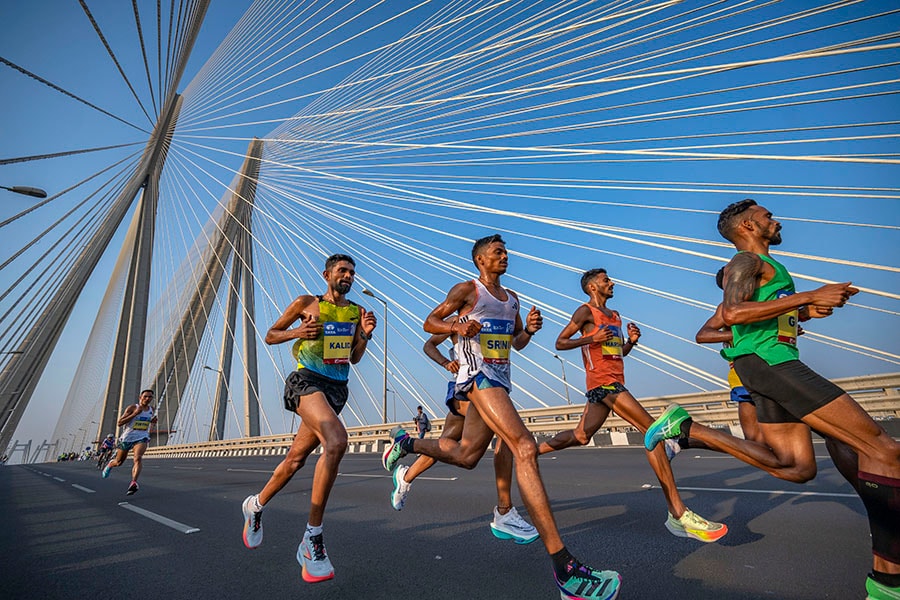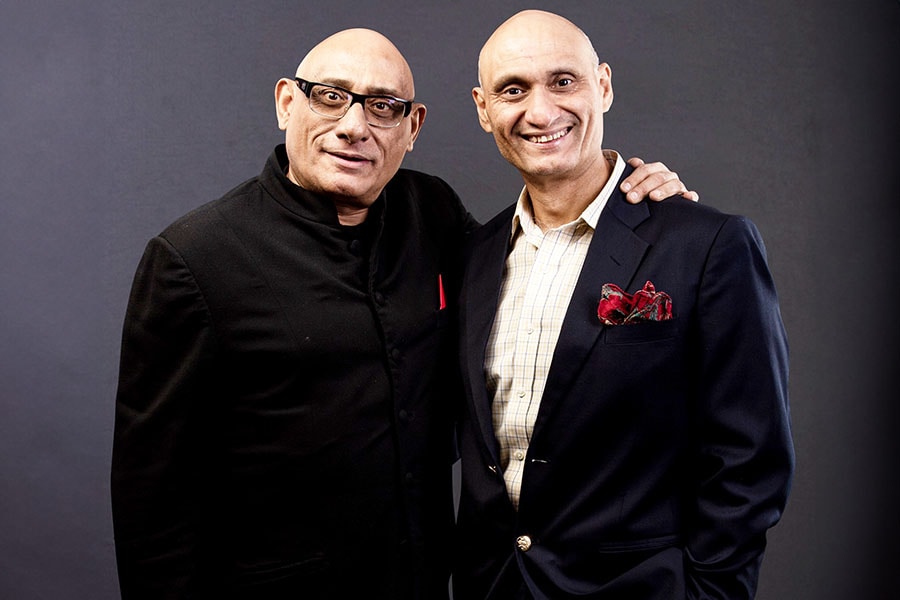
Running is the fastest growing sporting activity in India: Anil and Vivek Singh
The promoters of the iconic Mumbai marathon on how they got India to adopt running as an everyday activity
 Athletes run on Bandra-Worli sea link bridge as they take part in a marathon on January 21, 2024 in Mumbai, India.
Image: Satish Bate/Hindustan Times via Getty Images
Athletes run on Bandra-Worli sea link bridge as they take part in a marathon on January 21, 2024 in Mumbai, India.
Image: Satish Bate/Hindustan Times via Getty Images
On a recent Sunday, 56,000-odd people hit the streets of Mumbai to run the 19th edition of the Mumbai Marathon. The event began in 2004 and was promoted by brothers Anil and Vivek Singh, the founders of the sports consultancy Procam International. In 20 years, they have not only launched marathons across cities, and raised over Rs 500 crore for philanthropic initiatives through running, but have also fostered a running movement throughout the country. In an episode of Sports UnLtd, the Singh brothers tell Forbes India about the genesis of running and how marathons have turned into a melting pot for the society. Edited excerpts:
Q. How did Procam International come about?
Anil Singh: I launched Procam in 1988. At that time my friend Enrico Piperno and myself, both being national tennis players (Rico was number one), we launched ProCam, which is ‘professional camps’. Soon, I learnt that this journey is not worth the entire story if my brother doesn't partner me. He had no intention, but all I can say is that I'm glad I used my elder brotherly clout. When we started Procam, there was nothing like the sports management business whatsoever. But life has turned a lot.
Q. Vivek, how much of the elder brotherly bullying did you have to endure to join Procam?
Vivek Singh: Anil has been a fantastic elder brother and that's why the relationship has endured. Our professional relationship is more than 35 years old. Sports and sports management is an extension of his passion. I bring in some other strengths that kind of make it a business.








